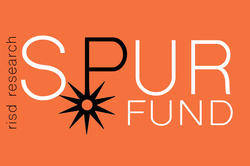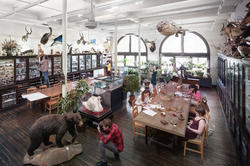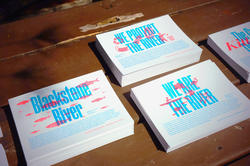Grad students Ann Lewis and Viraj Mithani, undergrad Yuqing Liu and recent alumna Elizabeth Meiklejohn use SPUR funding to conduct research in the US and abroad.
RISD’s Inaugural Somerson Sustainability Innovation Grants Support Groundbreaking Research
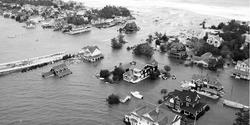
Six research projects combining art and design thinking with a focus on sustainability earned financial support in the 2022–23 academic year from RISD’s new Somerson Sustainability Innovation Fund (SSIF). Named after President Emerita Rosanne Somerson 76 ID and endowed by alum and former trustee Sarah Sharpe 94 GD, the fund provides substantial grants for transformative research initiatives, especially those that involve collaboration with external community partners.
“We invited the RISD community to present their imaginative concepts for a sustainable future and were inspired by the proposals that were submitted,” says Director of Research Soul Brown. “The projects we selected for this first round of funding offer fresh perspectives on sustainability and seek to achieve social, environmental and planetary wellness.”
Graduate Architecture student Adrian Pelliccia MArch 24 is using a global lens to examine a local problem: snowballing commercial real estate development in Providence’s Olneyville, Smith Hill and Federal Hill neighborhoods. According to Pelliccia, such for-profit development projects gentrify surrounding communities and displace long-standing residents.
“We’re at an inflection point where we can choose to either sustain the systems and actors that benefit from the continuation of the status quo or imagine new ways of sustaining people, communities and environments that have borne the brunt of systemic failure, exploitation and exclusion,” Pelliccia explains.
“We invited the RISD community to present their imaginative concepts for a sustainable future and were inspired by the proposals that were submitted.”
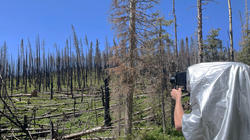
In partnership with Providence’s assistant city solicitor of inspections and standards, Pelliccia is using analytical and speculative architectural drawings and models to explore precedents that center radical visions for more sustainable ways of building. The work engages principles of adaptive reuse, responsible resource management and community-driven land use and development.
Recent grad Spencer (Broadus) Mobbs 23 SC is also using his grant money to investigate a global question that hits close to home: What are the long-term effects of wildfire and how can we mitigate them without creating additional stress on the environment? Mobbs is a native of Las Vegas, NM, where the Calf Canyon wildfire (which started as a controlled burn) scorched more than 500 square miles of natural landscape last year.
“I am interested in using photography to document the effects of the fire on surrounding communities as well as the effects of the floods that followed,” Mobbs says. “I hope to raise awareness of what can be done to regenerate soil and forest health in the area.”
Two additional student grants were awarded to recent grad Jacob Sussman MFA 23 CR, who is exploring using waste materials in manufacturing, and a pair of industrial designers working together on producing biomaterials: Arvind Bhallamudi MID 23 and Calgary Haines-Trautman MID 23. Both projects take advantage of the resources and expertise offered through RISD’s Edna W. Lawrence Nature Lab.
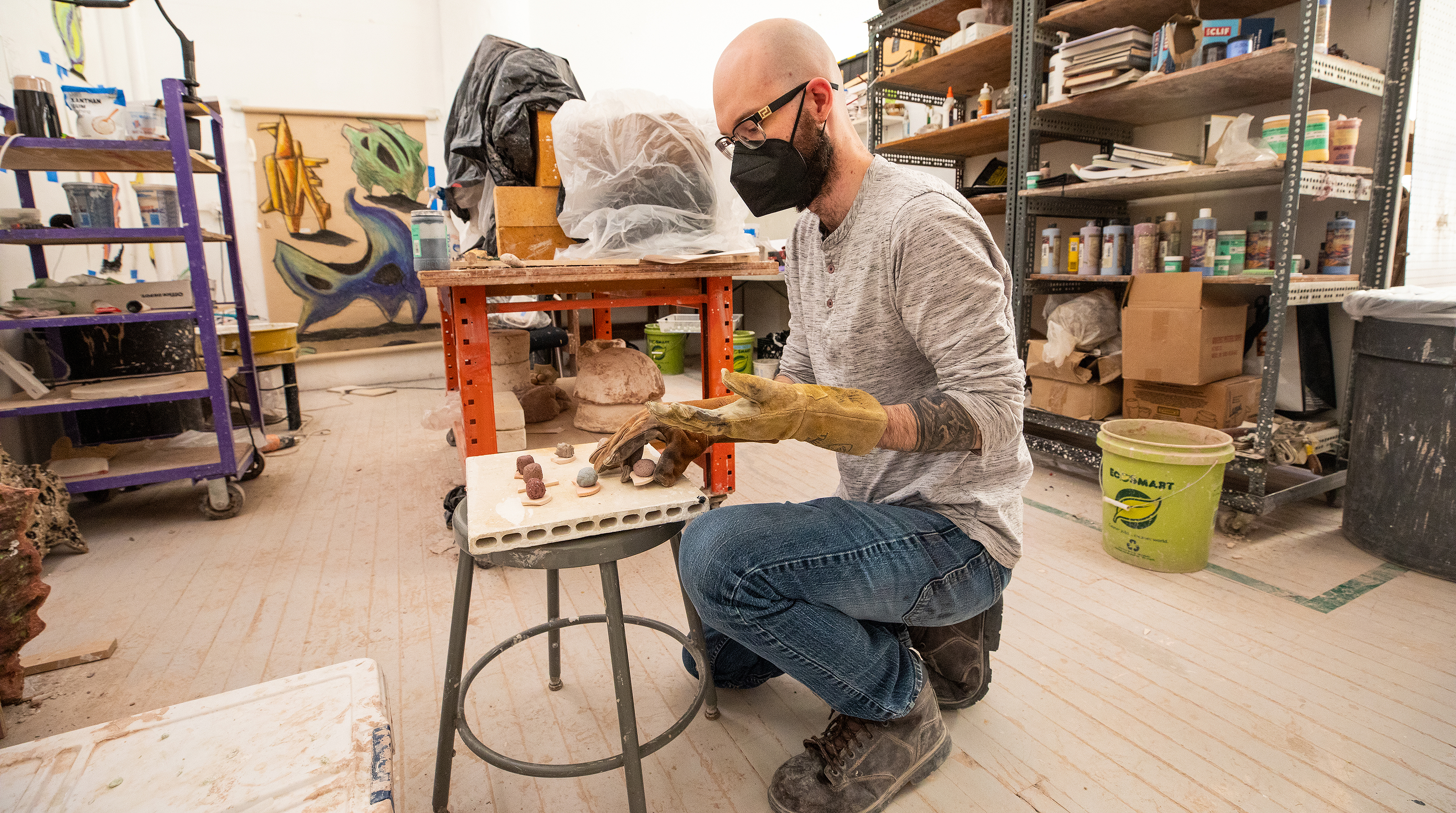

Bhallamudi and Haines-Trautman are exploring a local, biomaterials-based economy with the potential to remediate environmental harms and social injustices and create more resilient, connected communities. “We seek to explore how combining the small-scale possibilities of mycelium- and algae-based biomaterials with 3D printing can result in open-source biomaterials recipes, manufacturing and systems maps that demonstrate the possibilities of closed-loop manufacturing,” they explain.
Sussman’s project focuses on eradicating the mining of nonrenewable resources used in industrial building materials (ceramic, glass, concrete) and technology (batteries, circuit boards, processors). He proposes using agricultural waste as a resource to replace nonrenewable minerals and intends to analyze, test and formulate recipes using waste materials from local industries, such as coffee factories, farms and produce markets. “I hope this project helps steer society towards a future that does not destroy our environment or take advantage of underrepresented communities,” he says.
A project headed up by RISD-affiliated researcher Katia Zolotovsky also focuses on biomaterials, specifically as they pertain to the health of Providence’s water and aquatic biodiversity. Zolotovsky is working with recent RISD alums Avantika Velho 22 ID, Varun Mehta 21 ID and Manini Banerjee 23 ID as well as the nonprofit Living Systems Lab and Dr. Andreas Mershin of the MIT Center for Bits and Atoms on designing, testing and building an array of floating biofiltration pods to filter the Providence River.
Taking their cues from nature—specifically, the microbiomes that have evolved in area wetlands—they worked together to create floating BioPods able to purify river waters. “Each BioPod consists of a buoyant mat of mycelium embedded with biogenic matter, like semi-aquatic marsh grass and seaweeds,” Zolotovsky explains. “We’re also developing a framework for facilitating participatory design workshops to educate community members about the importance of preserving wetland ecosystems.”
And finally, Emily Vogler, an associate professor in the Landscape Architecture department, is partnering with multiple water conservation organizations on Hydro Commons: Stewardship Practices to Build Climate Resilience. “Our current land use patterns, resource consumption and lifestyles practices are unsustainable,” says Vogler, “and based on capitalist and colonial models of extraction and exploitation.”
Vogler’s project challenges existing systems by framing rivers, oceans and adjacent landscapes as shared community resources to be conserved for future generations. “These waters embody some of the last remaining resources that are still held in common by the people,” she explains. Through hands-on community workshops, she aims to develop practical stewardship models that reduce the negative impacts of climate change and build community resilience.
Simone Solondz / top image shows New Jersey flooding following Superstorm Sandy (image courtesy NASA)
July 19, 2023
